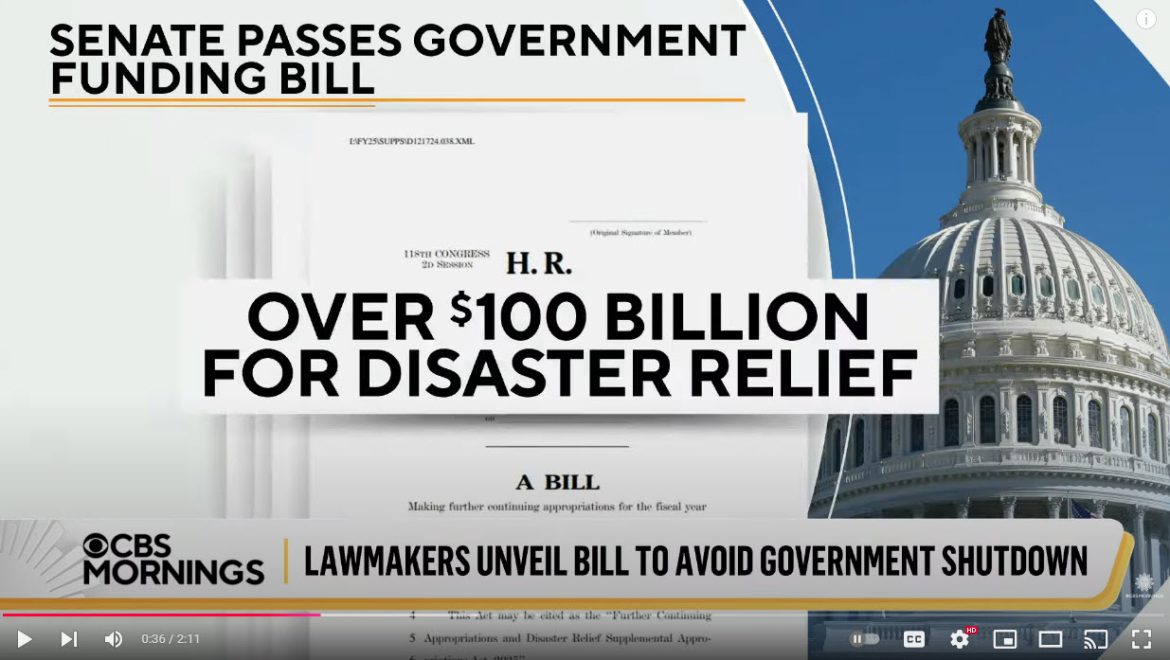In Washington, D.C., lawmakers from both parties reach a critical agreement to avert a government shutdown, narrowly avoiding disruptions to federal services and operations. The deal, announced yesterday afternoon, includes a $10 million allocation for disaster relief and a one-year extension of the farm bill. However, the size and scope of the spending package face strong opposition from some Republicans, particularly Missouri Congressman Eric Burlison, who calls the agreement fiscally irresponsible.
The stopgap measure extends government funding from its original December 20 deadline to March 14, 2024. This additional time allows the incoming Congress and the newly elected president to negotiate a long-term spending plan. While the measure addresses immediate funding needs, it highlights ongoing divisions within the Republican Party over fiscal priorities.
Democratic Senator Patty Murray of Washington underscores the urgency of finalizing the agreement, warning that a shutdown would harm essential programs and disrupt federal employees’ livelihoods. “We need a spending agreement in place as soon as possible,” she says, emphasizing the broad impact a shutdown would have on disaster recovery, agriculture, and other key sectors.
The package now awaits approval from both the House of Representatives and the Senate. Key provisions include funding for disaster relief programs critical to rebuilding efforts in storm-affected regions and a continuation of federal farm subsidies to support American agriculture. While many Democrats support the measure as a necessary compromise, some Republicans argue it fails to address long-term fiscal discipline.
Lawmakers worked intensively over the weekend to finalize the bill. Political analysts note that the deal represents a significant effort to maintain government operations amid heightened partisan tensions. Brie Jackson of NBC News reports that the March 14 extension provides a temporary solution but adds pressure on lawmakers to craft a comprehensive spending plan in the months ahead.
As the vote approaches, both parties acknowledge the challenges of balancing immediate funding needs with broader fiscal concerns. For now, the measure averts a shutdown that could disrupt federal services and potentially damage the economy. However, the road ahead remains uncertain, with deeper debates over spending, taxation, and national priorities looming in the new year.



